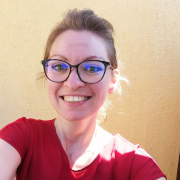If you are recovering from alcohol or drug addiction or are simply abstaining from drugs and alcohol, enjoying a sober festival may feel impossible. But the reality is you don’t need alcohol or drugs to enjoy your experience. This article gives you eight actionable tips you can apply to stay sober at your next festival.
.jpg?v=1722513784)
Staying sober at festivals
Staying sober at festivals is challenging, but you will also feel rewarded and empowered. The first time is always the hardest, but remember, it will get easier as you learn to experience everything festivals have to offer outside of substance use.
Once you become genuinely self-aware of your triggers and opportunities, you will realize you can train your subconscious mind to avoid these trappings.[1]
The eight tips below will help you manage the anticipation, pressure, and triggers of festivals and esnure you have the best time possible while totally sober.
8 tips to get the most out of a sober festival
1. Prepare yourself
Staying sober is difficult, especially if you have a history of addiction.
Besides, festivals can throw you from your current structure into a familiar past riddled with addiction.
That’s why you need to prepare yourself thoroughly:
- Go to therapy: Talk to your therapist about the festival you want to attend and work together to find the best strategies.
- Ensure you are ready: Typically, most therapists recommend at least one year of sobriety before delving into an environment with alcohol.
- Learn your triggers: Being conscious of the elements that make you drink will help you stop that behavior.
- Remember the pros: Keep your eyes on the prize and remember why it is important for you to stay sober.
2. Choose the right festival
Not all festivals and environments are conducive to staying sober. If you have just recovered from addiction or are still battling temptation, it’s best to stay on guard.
Choose:
- Sober festival: Organizations like Alcoholics Anonymous, CA, or Narcotics Anonymous organize specific festivals with no alcohol or drug consumption.
- Sober sections: Check if the festival you are attending has specific areas where the use of alcohol or drugs is prohibited.
- The right friends: It’s best to attend the festival with a group of sober people: You can share tips and recommendations or just hang out and support each other.
3. Plan ahead
Multiple studies show that unoccupied time and lack of structure can push you back to your old habits.[3]
To avoid this, research the event and map your day.
Structure every hour with activities and know what you’ll do throughout the festival. That’s how you can stay focused and maximize your experience.
4. Bring snacks and water
Bringing snacks and water has two benefits:
You will feel better: Staying hydrated and fueled with the right nutrients gives you energy and focus. That means you can have more control over your impulses. Besides, dehydration contributes to anxiety and makes you likelier to crave alcohol.
You will have something to munch on: If your hands are free, you are likelier to accept a beer. But if you’re already holding your chocolate smoothie, you will think twice before taking that drink.
5. Enjoy the music
Drugs and alcohol are a huge part of some festival experiences.
But remember, you can still find plenty of ways to enjoy the music without them.
So, make a list of all the ways in which you can enjoy the music without drinking. That can be:
- Dancing
- Singing along
- Listening to the music
- Sketching something
- Taking pictures
- Meditating
- Visit additional stands and tents to see what else the festival has to offer
6. Be mindful of your surroundings
Staying aware of your surroundings helps you avoid any risky situations because it puts your conscious mind in control.
Practice mindfulness by focusing on all visual, auditory, and tactile sensations at the festival.
Try to stay rooted and present instead of letting go.
Pro tip: If you feel the need to drink, do not suppress it. Focus on it intently without acting on it. Cravings disappear within a few minutes, so all you have to do is ride yours out.
7. Take part in festival activities
Many festivals offer activities such as hiking, pottery, or dance classes. These things allow you to relax and recharge.
Besides, they offer structure, keep you busy, and surround you with like-minded people, making you less likely to drink.
Remember to plan these activities thoroughly so you won’t be taken by surprise.
8. Have an escape plan
Realize that the situation can escape your control at some point during the festival.
Plan for this scenario, too:
- Enlist the help of a close friend.
- Have a safe word that lets them know you need help instantly.
- Imagine different potential crises that may occur and craft thorough action plans for all.
These plans will make you feel safer and give you structure. Even if you don’t have a close friend to rely on for this, you should still craft these plans.
Related blog: Staying sober for Christmas and new year
What are the most common drugs used at festivals?
A CDC survey into recreational drug use at festivals found that cannabis (marijuana), ecstasy (MDMA, molly), and cocaine are the most widely abused substances at festivals alongside alcohol. [6]
Hallucinogens and dissociative drugs are also popular; with ketamine, LSD, Psilocybin (magic) mushrooms, and DMT all being reported as contraband found by police at festivals.[7]
Opioids and benzodiazepines are less common, though reports of people using central nervous system depressants as 'downers' to help them sleep after a night of partying are widespread. This constitutes high risk drug taking as the combination of drugs in the system can lead to fatal overdose.

-(1)-blog-detail.jpg?v=1722513122)
-blog-detail.jpg?v=1722513339)
